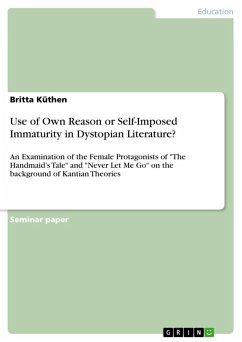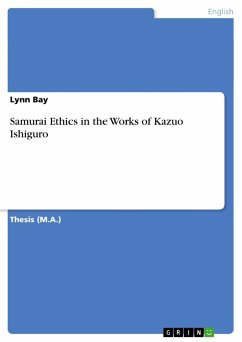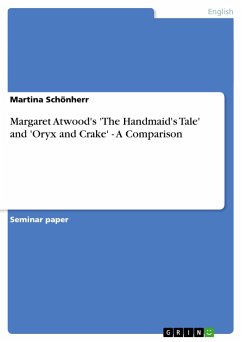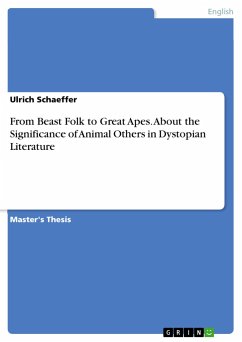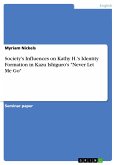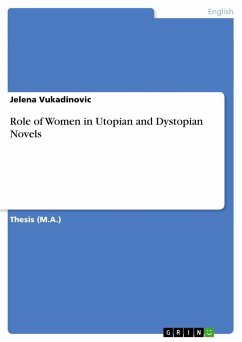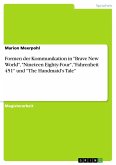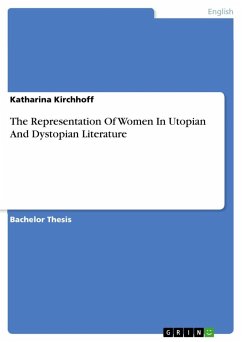Seminar paper from the year 2012 in the subject Didactics for the subject English - Literature, Works, grade: 1,7, University of Duisburg-Essen (Anglophone Studien), course: Dystopian Literature, language: English, abstract: At least since Aldous Huxley's dystopian classic Brave New World, first published in 1932, dystopian literature has been quite popular up to the present. As for example, Suzanne Collins' trilogy Hunger Games is one of the most influential as well as famous current dystopian novels. According to the Oxford Dictionary, dystopia as a literary term is defined as "[an] imagined place or state in which everything is unpleasant or bad, typically a totalitarian or environmentally degraded one. [...]" (Oxford Dictionaries 2012). The term paper at hand focusses on the individual living in totalitarian societies. Therefore, a closer look will be taken at the two female protagonists of Margaret Atwood's The Handmaid's Tale and Kazuo Ishiguro's Never Let Me Go, Offred andKathy. Their characters will be analyzed with special regard to their moral action as well as their use of reason living within a totalitarian system. The examination of the two characters is based on fundamental aspects of Kantian philosophy concerning the understanding of enlightenment, freedom and the use of reason.Since totalitarian regimes, as presented in dystopian literature, usually are authoritarian and oppressive, it is interesting to consider if such a society leaves room for making use of one's own reason (cf. Oxford Dictionaries 2012). Therefore the initial question of this term paper is: Do the two protagonists of The Handmaid's Tale and Never Let Me Go make use of their own reason in terms of Kant's definition of pure practical reason, freedom and enlightenment, or do they prefer to live under a self-imposed nonage? To answer this question, the term paper is divided into four chapters. Following this introduction, the second chapter concentrateson Immanuel Kant's philosophical theories. After a short expository passage, Immanuel Kant's basic hypotheses on moral concepts as well as his image of man will be explained, serving as a basis for the examination of Offred's and Kathy H's characters. In the first part of chapter two, the most important aspects of the Categorical Imperative will be illustrated. In the second part of chapter two, Kant's concepts of pure practical reason, freedom and Enlightenment will shortly be introduced as well as explained.In the third chapter, the two female protagonists' characters will be analyzed by focussing on Kantian philosophy as exposed before. First of all, Offred from The Handmaid's Tale and then Kathy H. from Never Let
Hinweis: Dieser Artikel kann nur an eine deutsche Lieferadresse ausgeliefert werden.
Hinweis: Dieser Artikel kann nur an eine deutsche Lieferadresse ausgeliefert werden.

